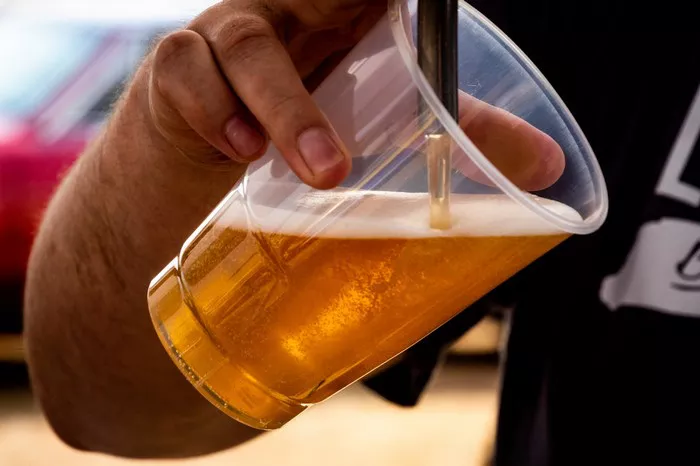Bud Light, a popular light beer, is a beverage enjoyed by many for its crisp taste and low calorie count. However, the question of whether Bud Light beer is good for you from a health perspective is a complex one. In this article, we will take a closer look at the nutritional aspects, potential health benefits, and risks associated with Bud Light beer consumption to provide you with a more informed perspective.
1. Nutritional Profile
Bud Light is classified as a “light” beer because it contains fewer calories and carbohydrates compared to regular beers. A standard 12-ounce (355 ml) can of Bud Light typically contains around 110 calories and 6.6 grams of carbohydrates. It also has minimal fat and protein content.
2. Lower Alcohol Content
Bud Light has a lower alcohol by volume (ABV) percentage compared to many other beers. This can be seen as an advantage for those who want to enjoy a beer without the higher alcohol content that can lead to excessive intoxication.
3. Hydration and Social Enjoyment
Beer, including Bud Light, is often consumed socially and can contribute to relaxation and enjoyment when consumed in moderation. Additionally, beer contains water, which can contribute to hydration when consumed alongside non-alcoholic beverages.
Potential Health Benefits
Moderate beer consumption has been associated with certain potential health benefits, including:
1. Cardiovascular Benefits: Some studies suggest that moderate alcohol consumption, including beer, may be linked to a reduced risk of heart disease.
2. Nutrient Content: Beer contains small amounts of certain nutrients, including B vitamins, minerals like potassium and magnesium, and antioxidants.
3. Social Interaction: Enjoying a beer in social settings can promote positive social interaction and relaxation.
Risks and Considerations
While there are potential benefits to moderate beer consumption, it’s important to be aware of the associated risks:
1. Alcohol Content: Even light beers like Bud Light contain alcohol, which can lead to impairment, addiction, and various health issues if consumed excessively.
2. Calories and Carbohydrates: If you’re watching your calorie or carbohydrate intake, it’s essential to consider the calories and carbs in beer, even in light varieties.
3. Health Conditions: For individuals with certain health conditions, including liver disease, diabetes, and some medications, alcohol consumption, even in moderation, may be contraindicated.
4. Legal Drinking Age: It is vital to consume beer responsibly and only if you are of legal drinking age in your country.
Conclusion
Whether Bud Light beer is “good” for you depends on your individual circumstances, health goals, and consumption habits. While it offers a lower-calorie option and can be enjoyed responsibly in social settings, it is essential to be mindful of its alcohol content and potential impact on your health. If you choose to consume Bud Light or any alcoholic beverage, moderation and responsible drinking should always be a top priority. Consulting with a healthcare professional can provide personalized guidance based on your specific health and lifestyle factors.
FAQs related to the topic of Bud Light beer:
Q1: Is Bud Light a healthier choice compared to regular beer?
A1: Bud Light is often considered a healthier choice than regular beer due to its lower calorie and carbohydrate content. However, the concept of “healthier” can vary depending on individual health goals and dietary preferences.
Q2: Can I include Bud Light in a weight loss or low-carb diet?
A2: Bud Light can be included in a weight loss or low-carb diet in moderation, as it has fewer calories and carbs than regular beer. However, it’s essential to monitor overall calorie and carbohydrate intake.
Q3: Are there any health benefits to drinking Bud Light?
A3: Moderate beer consumption, including Bud Light, has been associated with potential cardiovascular benefits and the intake of certain nutrients and antioxidants. However, the health benefits should be weighed against the potential risks.
Q4: How much Bud Light can I drink without negatively affecting my health?
A4: The definition of “moderate” alcohol consumption varies, but generally, it means up to one drink per day for women and up to two drinks per day for men. Exceeding these limits can have adverse health effects.
Q5: Can Bud Light be part of a balanced diet?
A5: Bud Light can be included in a balanced diet when consumed in moderation and as part of an overall healthy eating plan. It’s important to consider its calorie and carbohydrate content in your daily intake.
Q6: Does Bud Light have any nutritional value?
A6: Bud Light contains small amounts of certain nutrients like B vitamins, minerals, and antioxidants. However, these amounts are relatively low, and it should not be relied upon as a significant source of nutrition.
Q7: Are there any specific health concerns associated with Bud Light consumption?
A7: Bud Light consumption should be avoided or limited for individuals with certain health conditions, including liver disease, diabetes, and some medications. It can also have adverse effects when combined with certain medications.
Q8: Can drinking Bud Light lead to addiction or alcohol-related problems?
A8: While Bud Light is a lower-alcohol beer, it still contains alcohol. Excessive consumption of any alcoholic beverage, including Bud Light, can lead to addiction and various alcohol-related health problems.
Q9: Is there a safe limit for Bud Light consumption during pregnancy or while breastfeeding?
A9: It is recommended that pregnant individuals abstain from alcohol consumption, including Bud Light, during pregnancy. Alcohol can have adverse effects on fetal development. For breastfeeding individuals, it’s advisable to consult with a healthcare professional for guidance on safe alcohol consumption.
Q10: How can I enjoy Bud Light responsibly and in moderation?
A10: To enjoy Bud Light responsibly, it’s essential to be aware of your own limits, monitor your alcohol intake, never drink and drive, and consider the potential impact of alcohol on your health and well-being. Moderation is key.


